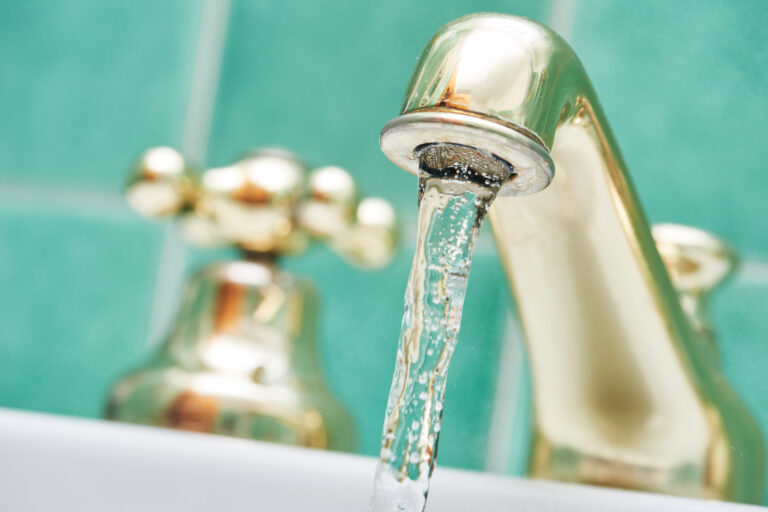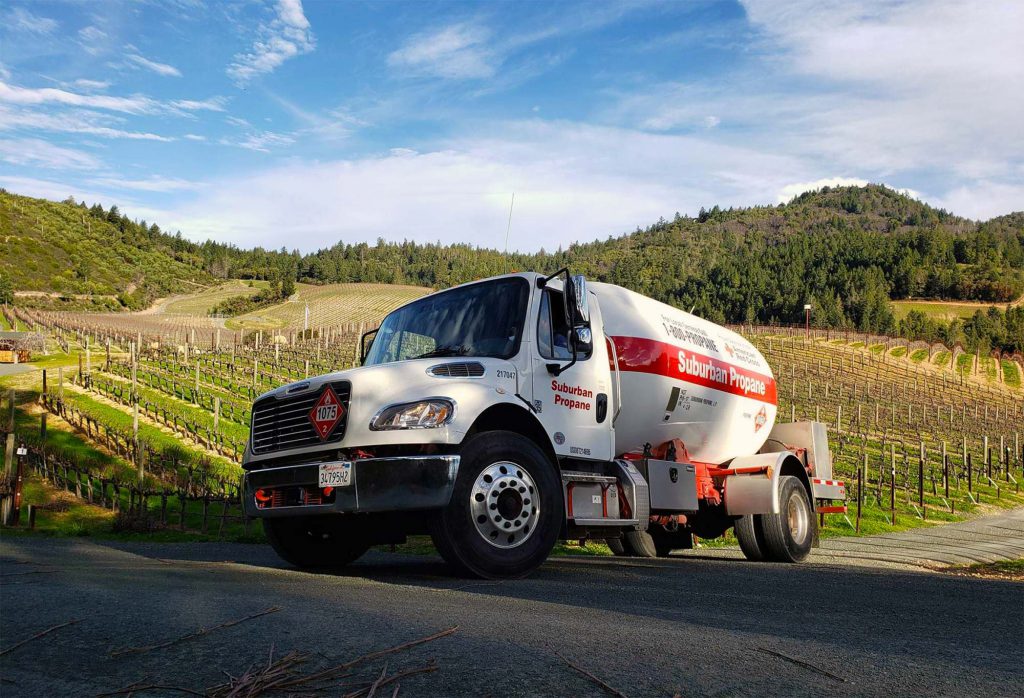The Power of Tankless Water Heaters

The propane tankless water heater provides comfort, versatility, convenience, and efficiency by supplying high volumes of hot water with compact and highly innovative technology.
APPLICATIONS FOR USE
– New Construction.
– Replacements/Retrofits.
Benefits of a Propane Tankless Water Heater
– Delivers endless supply of water.
– Only heats water when it’s needed.
– Compact size saves roughly 12 square feet of floor space.
– Saves more than $150/year in energy costs when compared with typical electric storage water heaters.
– Roughly half the CO2 emissions of electric storage tank systems.
– Qualifies for credits and rebates worth hundreds of dollars (new construction and replacements.)
These systems (also known as “demand” systems) eliminate “standby losses” which occur in systems with hot water storage tanks — like the typical electric water heater. Standby losses occur as the heated water in the storage tank is constantly re-heated while the tank loses energy to the surrounding environment — even if the hot water isn’t being used in the home. Propane tankless hot water heater systems do not suffer standby losses, and only heat water when it’s actually being called for in the home.
The compact size saves roughly 12 square feet of floor space compared with many electric systems — a huge benefit in tight floor plans, including multi-family projects. Their compact size and direct-vent design (meaning the air for combustion is ducted directly to the unit from outdoors) also allow flexible installation locations in closets, tight spaces, and even outdoors. Propane tankless systems also offer the versatility and scalability to serve any residential building, from smaller 3 GPM systems (~140 kBtu/h) to multi-unit combinations of higher capacity 4-5 GPM systems (199 kBtu/h).
PERFORMANCE
Propane tankless water heaters provide an endless supply of hot water, averaging over 200 gallons/hour based on the listed models in the AHRI Certified Products Database.
Many of these systems can maintain a ≥ 4 GPM flow with a 75 degrees Fahrenheit temperature rise during operation. Conversely, the average 50-gallon electric storage water heater in the AHRI database has an average first-hour delivery rating of just 64 gallons, while listed 50-gallon heat pump water heaters average about 67 gallons.
These flow rates are less than one-third of the delivery rate for propane tankless systems (see graph). For homeowners, this gap in hot water delivery rates is often the difference between a hot or a cold shower. Also, it’s important to know that many propane tankless units can modify their heating output to very low levels. This lets them respond effectively to low flow (~0.5 GPM) demands in the home.
ENERGY EFFICIENCY
A propane tankless water heater transfers propane’s thermal energy into hot water by up to a 0.99 Energy Factor (EF).1 To achieve such high efficiency ratings, many propane tankless systems utilize a condensing design, where additional thermal energy is extracted from the combustion gases to pre-heat incoming water, increasing overall system efficiency.
Long-term cost effectiveness can be defined by Annual Cost of Ownership (ACO), which is the cost for buying a water heater (amortized over its life) and paying for its annual energy bills. In a comprehensive 2015 analysis of residential water heating systems, two propane tankless systems were found to offer the lowest ACO in eight out of nine scenarios covering different climates and housing types when compared with electric water heaters, heat pump water heaters, and heating oil systems. Propane tankless’ strong cost-effectiveness stems from the system’s long service life (estimated at 20 years by multiple industry sources), low annual energy costs, and recent design changes to other systems driven by federal standards which have increased their costs.
Propane tankless systems also qualify for credits and rebates which can make them even more cost-effective. For example in 2015, a propane tankless system in many states will qualify for a rebate on the order of $250 from a state propane gas association.
ENVIRONMENTAL
Except for water heaters powered by renewable energy, all systems will have some environmental impact linked to their operations in the form of CO2 emissions. In the case of electric systems, the upstream electric power generation creates CO2 emissions. Based on energy and environmental analysis of different energy sources, propane tankless systems offer:
Roughly half the CO2 emissions of electric storage tank systems.
Roughly 33 percent lower CO2 emissions compared with heating oil storage tank systems in the Northeast.
ENERGY CONSUMPTION & COSTS
Given Energy Factors as high as 0.99, propane tankless systems operate very efficiently and therefore have relatively low fuel consumption and costs. View the fact sheet below to read how propane condensing tankless systems save roughly $150-200/year compared with typical electric storage water heaters or heating oil systems.
Courtesy of Propane Education Research Council
Share this story, choose your platform:
Related Posts
Peace of mind
with dependable
fuel supply, when
you need it

COMMUNITY
700+
Locations providing exceptional service to local communities across 42 states
EXPERIENCE
95+
Years serving our customers and their communities. Customer satisfaction since 1928
CUSTOMER SERVICE
3,300+
Dedicated employees ready to assist you with quality service for all your fuel needs
RELIABILITY
24/7/365
We are here for you with customer service representatives standing by to take your call
Please call us 24/7/365 at 1-800-PROPANE



